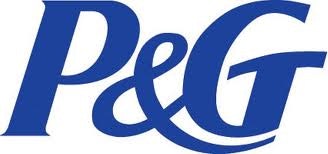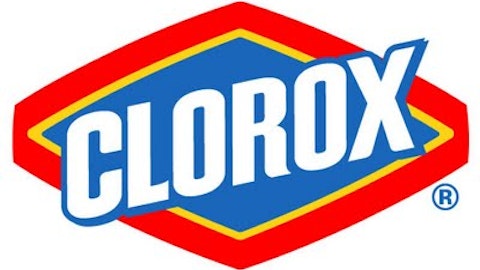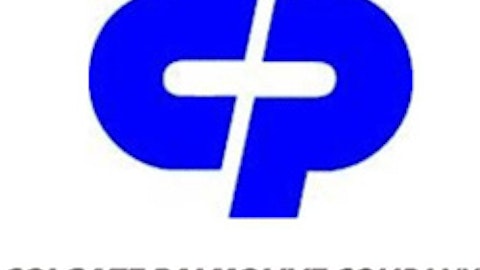Is it within the realm of possibility that Hugo Chavez is just a bit of a control freak? On Friday of last week, the colorful Venezuelan leader, currently undergoing treatment for cancer in Cuba, once again asserted his formidable command over the Venezuelan economy by remotely ordering a 32% devaluation of his country’s currency, the bolivar, against the U.S. dollar. This latest front in Chavez’s mercurial economic policy is partly intended to finance massive government debt spending incurred in the run-up to his reelection last year. It’s particularly vexing for multinationals that perennially attempt to crack the Venezuelan consumer market, despite the risks. Let’s take a look at the impact of the bolivar devaluation on four popular consumer-based companies with Venezuelan exposure:
Colgate-Palmolive Company (NYSE:CL)
Colgate’s sales and earnings were already facing pressure from Venezuela in late 2012. Economic uncertainty coupled with a labor slowdown in the company’s local Venezuelan production facility shaved a full 1.5% off Colgate’s worldwide organic sales and 50 basis points off its worldwide gross margin in the fourth quarter. When pressed by analysts during its fourth-quarter 2012 earnings call on Jan. 31, CEO Ian Cook declined to quantify the impact of a then-potential bolivar devaluation. The company had projected double-digit earnings-per-share growth in 2013, and Cook was careful to stress that “the double digit in dollar terms of guidance was absent a macroeconomic devaluation in Venezuela.”Cook also stated that if devaluation occurred, Colgate would issue related guidance “swiftly.”
True to Cook’s word, on Monday of this week following the devaluation, Colgate issued a press release stating that the company would take balance-sheet-related charges of $0.25 per share in the first quarter on its Venezuelan domiciled assets, as well as between $0.05 to $0.07 in per-share earnings reductions for each quarter of 2013. All told, these charges equal roughly $0.50 per share. Taking into account Colgate’s $5.15 earnings per share in 2012, this single event may have just wiped out the company’s goal of double-digit 2013 EPS growth.
The Clorox Company (NYSE:CLX)
Give Clorox a gold star for dealing proactively with the prospect of a bolivar slide. On releasing second-quarter 2013 earnings on Feb. 4, Clorox had already factored in a range of $0.05 to $0.10 earnings impact in its forward guidance due to what it deemed a likely bolivar devaluation. Venezuela accounts for roughly 2% of Clorox’s sales, and the devaluation effects may hit the top of the projected impact range or slightly exceed it. Of course, Clorox and all companies operating in Venezuela have some exposure to potential further devaluation this year. Frontier Strategy Group, a consultancy that predicted the currency’s weakening to the exact percentage point of 32% four months ago, expects that the devaluation could continue this year to a total of 55% to 60%. All in all, though, shareholders should be pleased that Clorox is actively forecasting and absorbing the earnings impacts in real time. This will make it easier to evaluate the rest of Clorox’s global earnings each quarter in 2013.
The Procter & Gamble Company (NYSE:PG)
Similar to Colgate and Clorox, P&G held a recent earnings call before the Feb. 8 devaluation, on Jan. 25, when it released its second-quarter 2013 earnings. However, where its peers clearly saw the bolivar’s devaluation as a probable event, and discussed it at length on their earnings calls, P&G treated devaluation as more of a possibility; one among several documented business risks. In its quarterly SEC filing, besides an obligatory currency disclosure denoting Venezuela as a high-inflation economy, the company mentioned devaluation risk almost as if in passing. On the Jan. 25 earnings call, it was similarly only mentioned once.
In retrospect, P&G may have wanted to supply a little more color on its risk exposure. The company sells over $1 billion of products in Venezuela. Moreover, price controls enacted by Chavez in 2012 have limited P&G’s ability to price its way out of sales weakness or use pricing to mitigate currency impacts. Other companies are subject to the same price controls, but P&G particularly suffers due to its broad range of products. In April of last year, price cuts mandated by the Venezuelan government forced P&G to reduce its organic sales growth projections by a 0.5% and its global earnings projections by 3%.
Those downward revisions were seemingly in the rearview mirror in the January call, and now there is a decent chance that P&G will trim its upward revisions from two weeks ago. Dizzy yet? Glossing over this particular risk, especially in light of the seriousness with which it was approached by its peers, may return to haunt P&G, as investors are increasingly questioning CEO Bob McDonald’s leadership. For this and other reasons, potential P&G buyers should stand by for a clearer picture of the company’s near-term prospects.
Arcos Dorados Holding Inc (NYSE:ARCO)
Arcos Dorados, the world’s largest McDonald’s Corporation (NYSE:MCD) franchisee, is the dominant restaurant company in Latin America’s quick-service category. As you might expect, Arcos sells a fair number of burgers within the borders of its fellow South American growth colleague. During the first six months of 2012, Arcos derived roughly 8.7% of its earnings from Venezuela. In this case, potential investors may want to sit tight until the company’s next earnings call on March 8. At that point, investors should have a specific picture of the projected effects of the bolivar devaluation on 2013 results; it will certainly be a topic treated in Arcos’ 2012 form “20F” (foreign corporation’s version of the 10-K annual report filed with the SEC).
More to come?
Venezuela has historically been an important market for consumer-based multinationals trying to gain a toehold in Latin America. Yet an overreliance on oil, deficit spending, difficult price mandates, and the unpredictable expropriation of assets are just a few of the problems besetting those companies that are still trying to make it here. Not to mention a leader who distrusts the very multinationals providing much-needed basic consumer goods in an export-based economy. Watch out, multinational profit and loss statements: We may not have yet seen the end of bolivar devaluation in 2013.
The article Venezuelan Currency Devaluation: 4 Companies to Watch originally appeared on Fool.com and is written by Asit Sharma.
Fool contributor Asit Sharma has no position in any stocks mentioned. The Motley Fool recommends McDonald’s and Procter & Gamble. The Motley Fool owns shares of Arcos Dorados and McDonald’s.
Copyright © 1995 – 2013 The Motley Fool, LLC. All rights reserved. The Motley Fool has a disclosure policy.





